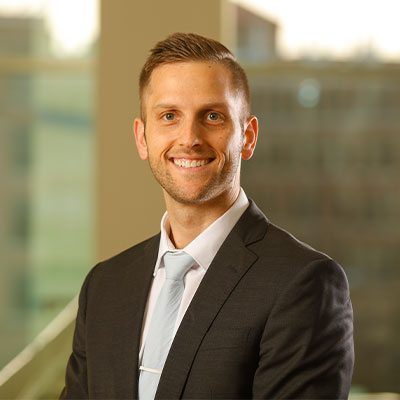Neurosurgery Residency Program

Thomas Mattingly, M.D., M.Sc.
Program Director
The University of Rochester enjoys a longstanding history of training outstanding clinical neurosurgeons. I've watched the evolution of this Neurosurgery Residency Program and have been impressed with its growth and development. In addition to the University hospital we now have three affiliated community hospital rotations providing additional clinical experience for our residents. Always very strong in clinical neurosurgery, the addition of an outstanding research faculty has added a further dimension to our ability to produce top notch neurosurgical residents prepared to enter the neurosurgical work force in the career path of their choice.
All aspects of neurosurgery are represented in the faculty on staff, from the ability to perform interventional cerebrovascular work to the latest techniques of deep brain stimulation, as well as the advanced techniques of minimally invasive and complex spine surgery. We now have subspecialty programs in neuro-oncology, neuroendocrine, pediatrics and epilepsy. These programs and technically advanced surgical interventions are practiced by a diverse faculty anxious to impart their knowledge and expertise to our neurosurgery residents.
Opportunities to expand our research into other departments within the University of Rochester Medical Center are constantly available and encouraged. And the hallmark of our program is a strongly knitted atmosphere of collegiality between the faculty and the residents.
It is my wish, as well as the wish of the entire faculty, that you thoroughly explore the possibilities of training in our program.
Research Fellowships Available (Summer 2025-26 and Year-long).
The Rusyniak Memorial Medical Student Research Fellowships are designed to allow medical students to engage in clinical or translational research with mentorship by a UR Neurosurgery faculty member. The Rusyniak Research Fellowship awards are funded by an endowment established within the Department of Neurosurgery and recognize the commitment of Dr. W. George Rusyniak to the education and inspiration of medical students with interests in Neurological Surgery.
14
Total Residents
100
%
15404
A Day in the Life of a Neurosurgery Resident
What Our Residents Say...

“When I interviewed at the University of Rochester, I immediately noticed a difference compared to other neurosurgery programs. Relationships between residents and faculty were professional and collegial, but also genuine. This was a program where residents developed over years as both colleagues and friends. Although I already knew the program was very strong both clinically and academically, this now ensured it would be an excellent fit.
I am fortunate to have found several faculty mentors at the University of Rochester. With their support, I have developed not only as a surgeon and an academician, but also as a father and husband. Their mentorship has transcended beyond the operating room to make me the person I am today. I am extremely grateful to be a resident at URMC, and I owe much of my success to the mentors here who have continued to invest in me."
Nathaniel Ellens, MD, (PGY-7)
Medical School: Michigan State University, College of Human Medicine
